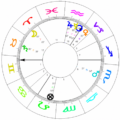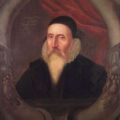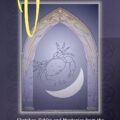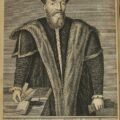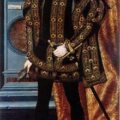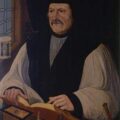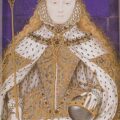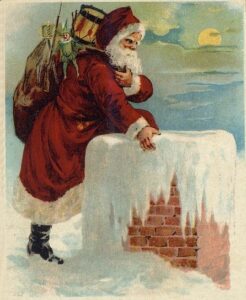
Superstition by Robert Parry
Do you remember when you were told that Father Christmas didn’t exist? Usually it was a school-friend or an older sibling that broke the news, and we each of us probably took it quite calmly – being at an age when we had begun to suspect as much anyway. Just another one of those silly old superstitions.
It was quite a few years later that I suddenly realised that, in fact, Father Christmas did exist. Of course he did! It was all to do with the world of ideas. Even before Victorian times, when our own particular version of Father Christmas began to take shape in England, people in other European countries had been venerating various ‘Father Christmases’ in different guises for centuries. Closer to home, my Grandfather, I know, took his son to see a ‘Father Christmas’ in the one of the big department stores and my father in turn took me, and so on. Generations of people have come and gone, lived and died, and yet Father Christmas remains – and how much more real must an idea be that can outlive us all and endure for so long!
So what about all those other superstitions – the beliefs cherished by our Tudor and Elizabethan ancestors? What about witches, what about ghosts? What about astrology, alchemists and angels? Here are some thoughts on why these might at least deserve our attention.
Ghosts
Yes, people have been telling stories about things that go bump in the night since the beginning of time. Ghost hunts are now more popular than ever – in tourist hot-spots, castles and stately homes –even popular TV shows: ‘Is there anybody there?’ The notion of something surviving the physical body is one that draws us constantly towards contemplating the issue of our own mortality, and therein lies its value. The ghost, as an idea, is indestructible.
Angels
Yes, every culture at every age has had its ethereal beings that offer protection and guidance. The Elizabethans and Tudors prayed constantly and spoke with angels. Our modern-day angels might have wings and a halo, or they might appear emerging from a space ship – but we would do well not to banish them entirely from our lives. Who knows when they might come in handy? A moment of reflection in which we speak to the inner voice of our deeper selves invariably helps us through a crisis.
Magic
Tudor and Elizabethan society was permeated with magic. Witches could cast spells and curse. The power of thought is still recognised in our own times, of course. Thoughts can make us sick, or help us to heal ourselves. Thoughts can design bridges and skyscrapers. Thoughts can spark whole movements of radical change – imaginative powers that can outlive us all. We still adore our wizards and witches, those black-cloaked figures of mystery and surprise that live on in popular Halloween culture, because they demonstrate the tremendous power of ideas to affect change.
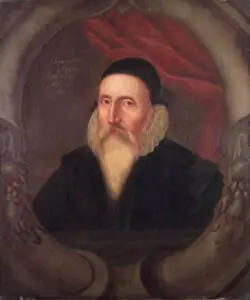
Astrology
A belief that the stars influence the affairs of humankind has existed since the very earliest times when people looked up to the Sun, Moon and planets and wondered what their movements might signify. It reached its peak in Elizabethan times, and was widely contemplated by all strata of society. As a rich source of symbolism it has continued to inspire some of our greatest works of art and remains a vehicle for self-exploration and understanding. It also helps us to ask questions. ‘What star sign are you?’ In this sense astrology does not need to be logical or scientific, it simply needs to be fun.
For us, today, the word ‘superstition’ has become a derogatory term. Yet the root of the word itself simply means ‘to stand over something in awe.’ It does not mean that the ‘something’ in question is unworthy or of little importance. Quite the contrary.
Plato, whose work was rediscovered in the West around about the time of the Tudors, described our version of reality as but shadows cast upon the wall of a cave, illuminated by a fire from behind that we can never turn our heads to see – transient images, therefore, which we confuse with reality. The source of the light, the eternal world of ideas, is the stuff to focus on, he believed, and so did the Tudors.
So perhaps a moment or two of contemplation as well as celebration at this time of the year might well be in order. The wise old man with the white beard is real enough – and so, too, is the Archangel Gabriel, and the three kings and the Virgin Mary: all eternal ideas in the collective consciousness of us all. Enjoy your encounters with Father Christmas. It does not matter how many spoilsports might whisper in your ear that he does not exist. He does! And he is probably going to be around for a long time yet.
Virgin and the Crab: Fables and Mysteries from the Early Life of John Dee and Elizabeth Tudor
I have reviewed Robert’s magical novel over at our review site – see http://reviews.theanneboleynfiles.com/the-virgin-and-the-crab-by-robert-parry/184 – but here is an excerpt from my review:-
“Virgin and the Crab: Fables and Mysteries from the Early life of John Dee and Elizabeth Tudor” tells the story of John Dee, a real man not a fictional character, and a man who was both a friend and adviser to Queen Elizabeth I. He was seen as one of the most learned men of his age, being accomplished in mathematics, astronomy, navigation and astrology, but what was interesting about Dee was that he straddled the worlds of academia and magic. He was both a scientist and a magician. A renowned mathematician and astrologer. A philosopher and an alchemist. A most interesting character to base a novel around!
The author, Robert Parry, does a wonderful job at bringing his central character to life. I was left imagining John Dee as a mixture of Derren Brown, Patrick Jane/Simon Baker from The Mentalist, Paul McKenna, Einstein, Galileo and James Bond. He is a master of disguise, the perfect spy, a teacher, philosopher, free thinker, hypnotist, magician and most importantly a fiercely loyal friend. In short, he is someone you want and need on your side!”
“Virgin and the Crab” is available from Amazon.com and Amazon.co.uk.
